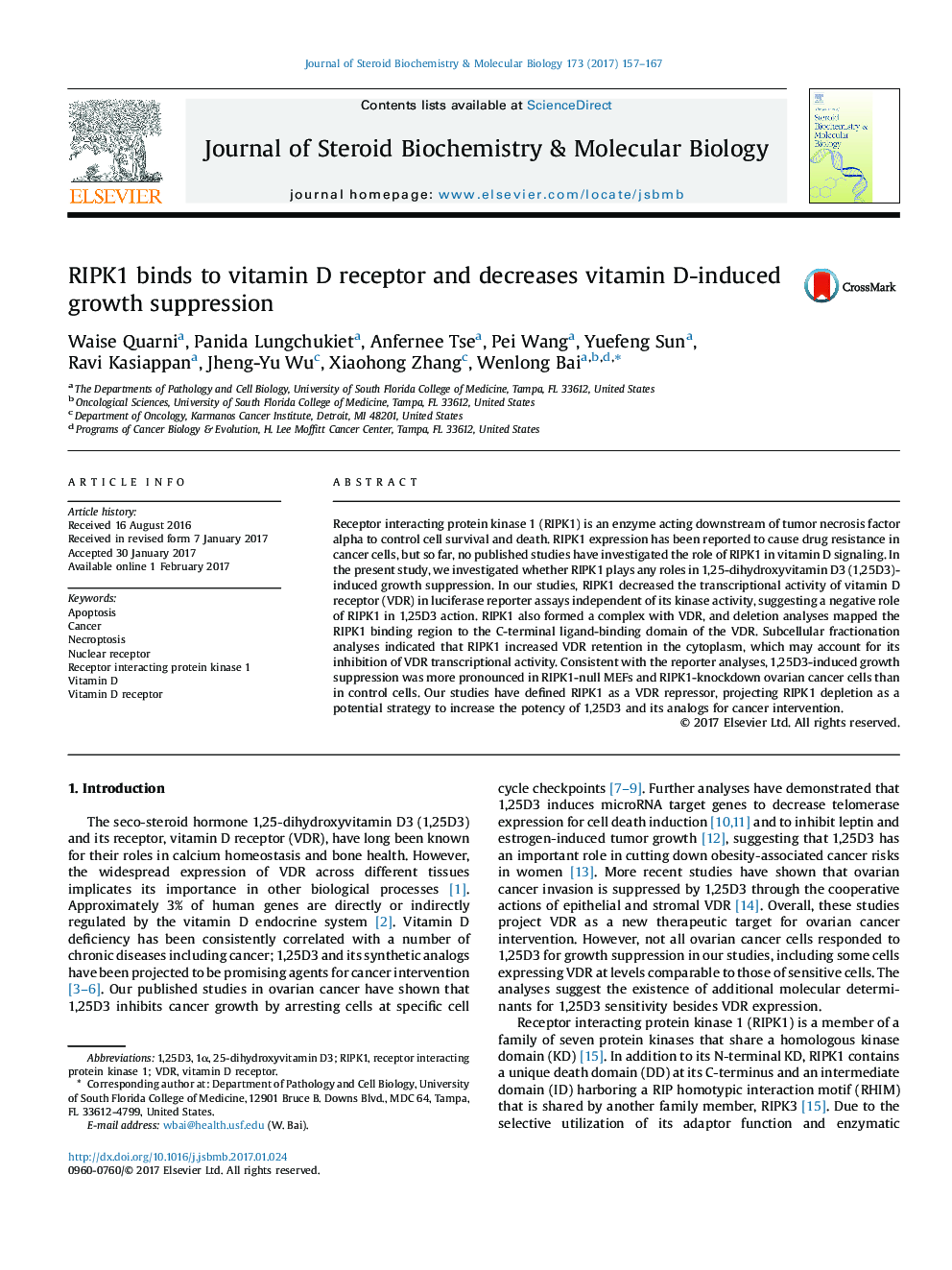| Article ID | Journal | Published Year | Pages | File Type |
|---|---|---|---|---|
| 5513002 | The Journal of Steroid Biochemistry and Molecular Biology | 2017 | 11 Pages |
â¢RIPK1 forms a complex with VDR in vitro and in vivo.â¢RIPK1 inhibits the transcriptional activity of VDR.â¢RIPK1 depletion increases 1α,25-dihydroxyvitamin D3-induced growth suppression.
Receptor interacting protein kinase 1 (RIPK1) is an enzyme acting downstream of tumor necrosis factor alpha to control cell survival and death. RIPK1 expression has been reported to cause drug resistance in cancer cells, but so far, no published studies have investigated the role of RIPK1 in vitamin D signaling. In the present study, we investigated whether RIPK1 plays any roles in 1,25-dihydroxyvitamin D3 (1,25D3)-induced growth suppression. In our studies, RIPK1 decreased the transcriptional activity of vitamin D receptor (VDR) in luciferase reporter assays independent of its kinase activity, suggesting a negative role of RIPK1 in 1,25D3 action. RIPK1 also formed a complex with VDR, and deletion analyses mapped the RIPK1 binding region to the C-terminal ligand-binding domain of the VDR. Subcellular fractionation analyses indicated that RIPK1 increased VDR retention in the cytoplasm, which may account for its inhibition of VDR transcriptional activity. Consistent with the reporter analyses, 1,25D3-induced growth suppression was more pronounced in RIPK1-null MEFs and RIPK1-knockdown ovarian cancer cells than in control cells. Our studies have defined RIPK1 as a VDR repressor, projecting RIPK1 depletion as a potential strategy to increase the potency of 1,25D3 and its analogs for cancer intervention.
